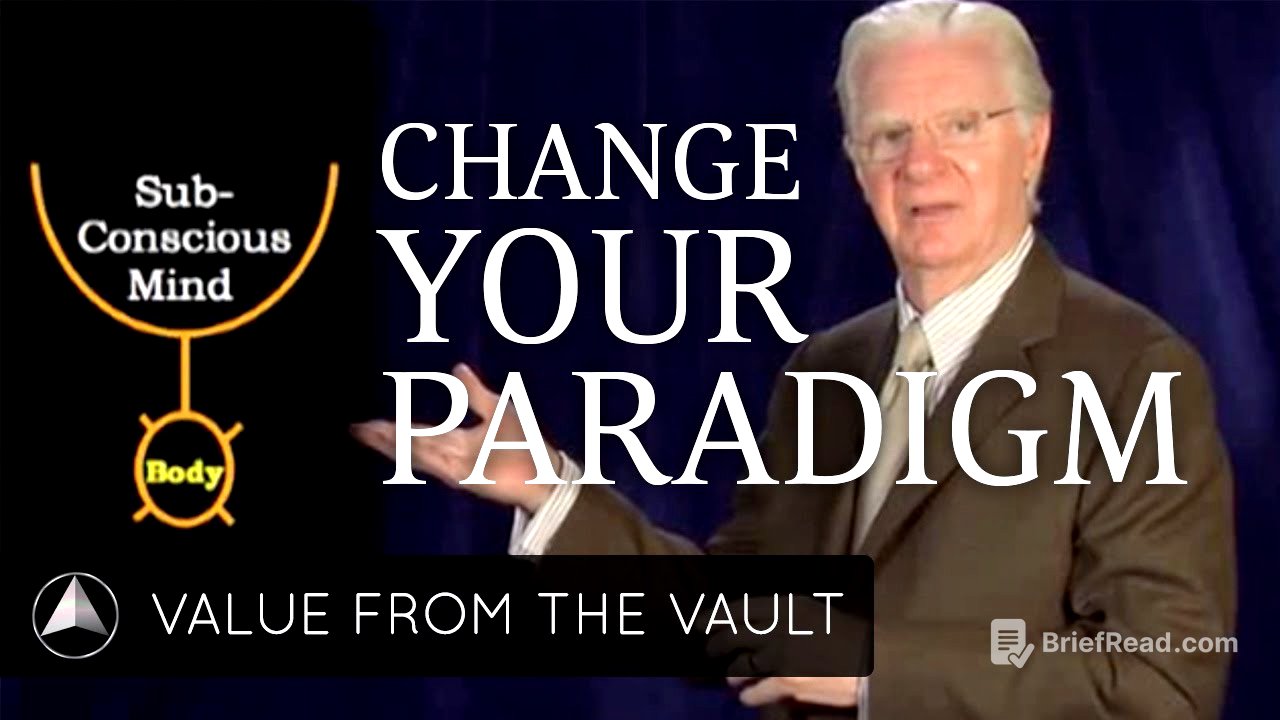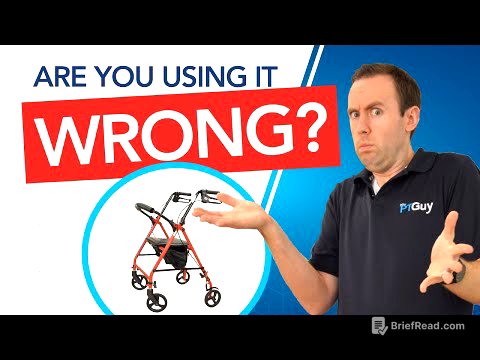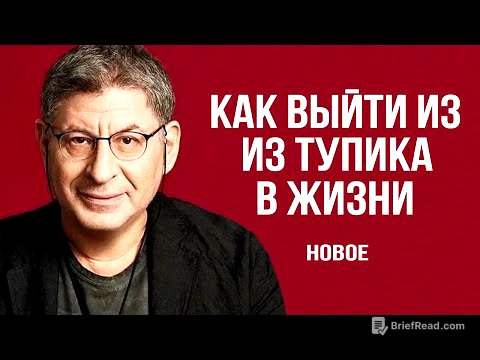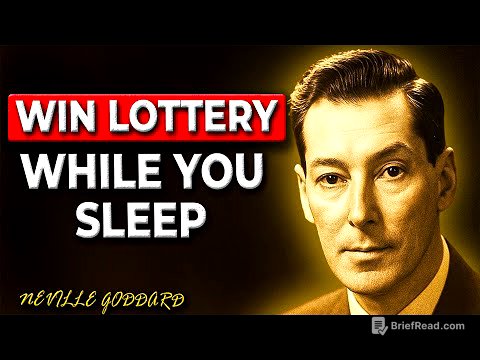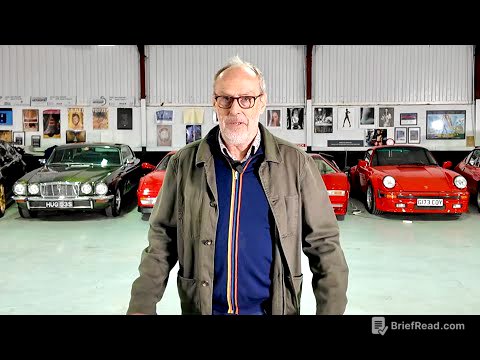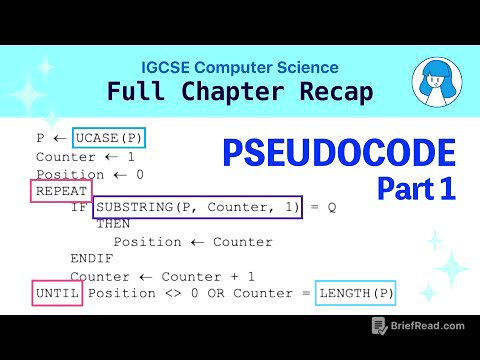TLDR;
Bob Proctor discusses the power of the subconscious mind and how it influences our feelings, actions, and results. He explains how our early programming shapes our paradigms, which are sets of habits that control our behavior. To change our lives, we must change our paradigms through the repetition of new ideas and affirmations.
- The body is an expression of the mind, and our feelings are a conscious awareness of our vibration.
- The subconscious mind is programmed genetically and environmentally, shaping our paradigms.
- Paradigms control our behavior, logic, time management, perception, effectiveness, and income.
- Changing paradigms requires repetition of new information, such as affirmations, to reprogram the subconscious mind.
Introduction: The Mind-Body Connection and Vibration [0:00]
Bob Proctor introduces the concept of the mind-body connection, explaining that the body is an expression of the mind. When an idea is impressed upon the subconscious mind, it alters the body's vibration. Our conscious awareness of this vibration is what we call feeling. He emphasizes that we have the ability to control how we feel and respond to external influences, rather than react to them. Understanding the relationship between the mind and body is crucial for changing our results.
Energy, Desire, and the Conscious-Subconscious-Body Model [1:41]
Proctor explains that energy is universally present, and people don't "get" energy but rather release it. Desire acts as the trigger that allows energy to flow. He reviews the conscious mind's ability to choose thoughts, which then turn into pictures and are passed to the subconscious mind. The subconscious mind then expresses these thoughts through action. The subconscious mind cannot reject or differentiate between what is real and what is imagined.
Early Programming of the Subconscious Mind [2:44]
Proctor discusses how the subconscious mind is programmed from birth, initially through genetics and then environmentally. The environment, according to Carl Menninger, is more important than heredity. Language and food preferences are examples of environmental programming. The ideas and concepts surrounding a baby are repeatedly absorbed into the subconscious mind, shaping their thinking patterns by the age of four or five.
The Paradigm and Its Influence on Thinking [5:09]
Proctor explains that a person's paradigm, formed by early programming, controls their vibration, actions, and results. People tend to think thoughts that align with their existing paradigm. He challenges the belief that working is the best way to earn money, suggesting that it's better to work for satisfaction and provide service for money. The paradigm can limit one's belief in possibilities, such as earning money while sleeping.
Paradigms: Habits Controlling Behavior [6:08]
Proctor defines a paradigm as a multitude of habits, which are ideas programmed into the subconscious mind through repetition. The paradigm controls behavior, often subconsciously overriding conscious thoughts. He notes that paradigms dictate logic, time utilization, perception of situations, effectiveness, and the amount of money earned.
Changing Paradigms to Change Life [7:29]
Proctor asserts that changing one's paradigm is essential to change one's life. He introduces the concept of praxis, which is the integration of belief with behavior. By consciously determining new beliefs and planting them in place of old ones, individuals can rewrite their subconscious programming. He shares his personal experience of changing his paradigm and transforming his world.
The Importance of Understanding Paradigms [8:54]
Proctor emphasizes that understanding how to alter one's paradigm is crucial for changing life. The paradigm, a program of fixed concepts in the subconscious mind, controls behavior. He explains that most people get the same results year after year because they don't understand how to change their programming.
Changing Paradigms Through Repetition and Affirmations [9:29]
Proctor explains that paradigms are formed and changed through the repetition of information. To change a concept, such as one about money, repetition of new ideas is necessary. He introduces affirmations as a tool for reprogramming the subconscious mind, providing an example: "I am so happy and grateful now that money comes to me in increasing quantities through multiple sources on a continuous basis." He advises repeating such affirmations thousands of times a day for an extended period.
Personal Experiences and the Power of Paradigm Shift [10:23]
Proctor shares his personal experience of driving around and listening to a record repeatedly, reading "Think and Grow Rich" daily, which ultimately changed his paradigm. He recounts an encounter with Milt Campbell, an Olympic gold medalist, who realized through Proctor's seminar how he had subconsciously rewritten his program to achieve his success. Proctor concludes by reiterating that his company teaches people how to change paradigms.
Conclusion: Sharing and Building Rapport [12:03]
Proctor encourages viewers to share the information with others to build rapport and foster understanding. He expresses his enjoyment in sharing these concepts and thanks the audience for listening.
